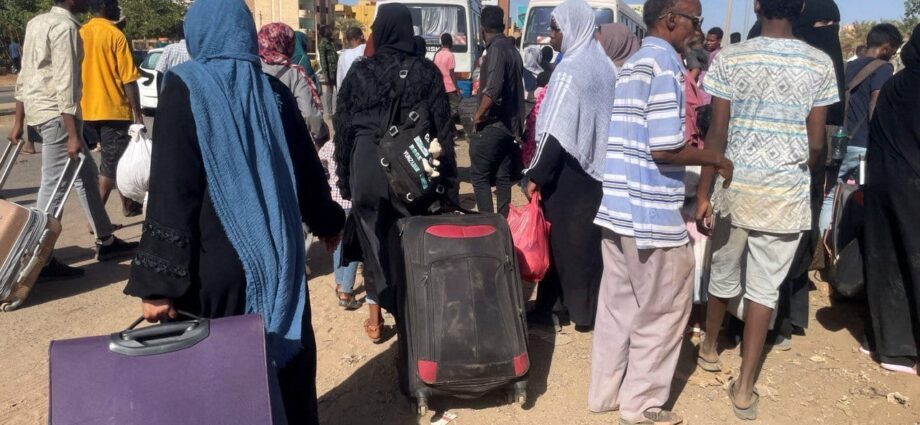A senior government official in South Darfur who preferred his identity to be kept anonymous, revealed that there were obstacles by the Sudanese army in Al -Fasher City preventing delivery of more than 35 thousand sacks of flour from Saudi Arabia to the displaced in Darfur states
He said that his mandate received 36,000 bags of a total of 40,000 tons of the state’s share of flour after deducting 4,000 mobiles by the Darfur Regional Government and storing them in the “Super Camp” of UNAMID northwest of Al -Fasher in preparation for its deportation to the localities of the state, but the army in the city of El Fasher refused to deport it to Nyala.
He added, “After rapid support in the city of Nyala in late October, the security services refused to leave any relief materials to South Darfur and sought with the authorities in Port Sudan without success, and we hope that they will be released soon.”
The official pointed out that the quantities arrived in September last year from the city of Port Sudan through 72 trucks with a load of 200,000 mobiles for the five states of Darfur, not all states were distributed except for North Darfur, which distributed their share to its localities before the end of the flour in late February.
He was surprised by the disposal of the region’s government and its opponent for 20,000 mobiles of the five states of the states without providing them with the displaced, and added: “The displaced in Fasher are starving and the region’s government in silence”, stressing at the same time the distribution of more than 1,250 mobiles from the share of South Darfur for the displaced from Nyala in shelters in the city El Fasher.
The official stated that the Secretary -General of the government of South Darfur, in charge, Salah al -Din al -Muj, traveled to the city of El -Fasher to bring relief and medicines from the state’s share, but he failed and returned to Nyala last January.
The administration of a speech camp launched a distress call for the displaced people, threatening a humanitarian catastrophe after national and international organizations stopped providing services to them.

